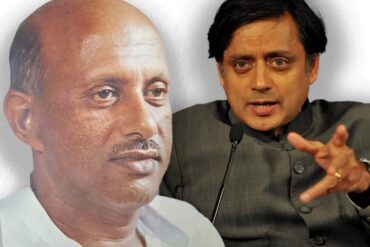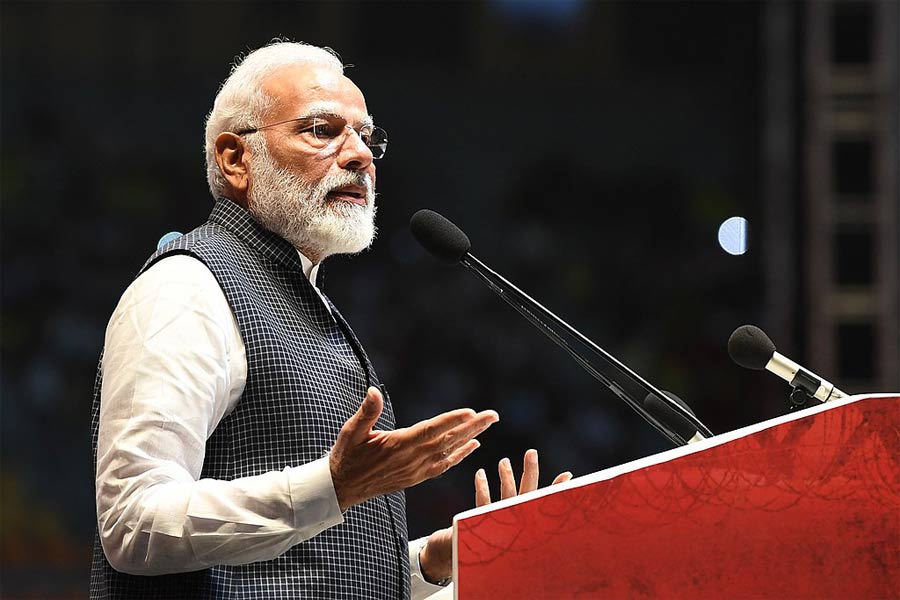The Narendra Modi-led National Democratic Alliance (NDA) government has gone into an activity (and legislation) overdrive ever since its re-election. Jammu & Kashmir (J&K) has been reorganized, and its special status withdrawn, triple talaq has been criminalized, amendments have been made to the Right to Information Act (RTI) and the Unlawful Activities Prevention Act (UAPA), a position of Chief of Defense Staff (CDS) has been announced—also, there is a concerted push towards closing the Ram Janmbhoomi-Babri Masjid case.
More is on the anvil: Rollout of the National Register of Citizens (NRC) across the country; and, going by the prime minister’s Independence Day address, some action on the population control front. Defense Minister Rajnath Singh has signaled that India’s long standing no first use (NSU) nuclear policy could be reviewed.
Almost all these moves and proposals have sparked huge debates. In fact, some of them have been on the table for years and remained un-acted upon, fearing either disruption of established arrangements and balances of power. It is fashionable to single out the Congress party, the party of governance for the longest time, for inertia, but Modi’s own party and the NDA’s largest constituent, the Bharatiya Janata Party (BJP), too chose to park its core issues till an opportune moment came.
The recent spurt of action suggests that the BJP believes the time for action has come. Which begs the question as to what is so unique about the present moment for the BJP to push forth on agendas it has been patient about thus far? The parliament’s arithmetic does not explain it fully. The NDA under Modi enjoyed a majority in the earlier Lok Sabha too, and the Rajya Sabha numbers continue to remain to the opposition’s advantage, ever so slightly.
During the run-up to the 2019 parliamentary elections, many a sarcastic comment and meme targeted the BJP for abandoning its acche din plank of 2014 and focusing on national security issues. The BJP was seen to be foregrounding emotional national security issues to deflect attention from its disappointing performance on the vikas front.
Given the impressive endorsement the Balakot airstrikes and the fervent national security pitch fetched the BJP, it is likely that the government reads the verdict as endorsement for a muscular leadership and governance—which, of course, it claims to be providing with its recent maneuvers. It is a different matter that a large section of the electorate may not fully comprehend what the party’s muscular positions would imply for civil liberties and individual freedoms.
Interestingly, a sizeable section of the opposition seems to agree with many of the BJP’s recent initiatives. Much of this stems from the magnitude of the defeat it has been handed. Surely, there is something resonant in what the BJP is saying, or how else would it fetch the endorsement it did, and continues to resonate with the public, appears to be the thinking.
At a time of low morale, this self-doubt has gone on to manifest itself in either genuflections before the BJP (most deserters claim to be inspired by the prime minister’s vision) or calls for revisiting their own party stances (most recently evidenced in the varying reactions to the government’s J&K proposals from within the Congress). Such confusion and discord hardly provides the space for reflecting on party revival plans and, more importantly, the merits or otherwise of official positions. The BJP’s timing then is sound, aimed at making the most of the state of disarray in rival ranks.
For the BJP, the 2019 verdict has also cleared the last vestige of doubt about whether the opposition can mount an effective and coherent challenge to it. That smart political messaging, together with a mainstream media disinclined to interrogate the official line would circumvent the fall-outs of painful decisions had been proved during the time of demonetization, and on several occasions afterwards.
Finally, there is something to be said about the presence of Amit Shah in the government. As party chief, Shah set a punishing pace for his party’s growth plans and demonstrated the pugnaciousness and resourcefulness to realize those plans. It is likely that he brings the same qualities to the position he now occupies as the Union Home Minister. The BJP has rewritten electoral history under Modi and Shah. Now, the team is aiming for something grander. The agenda is contentious but the pieces are falling pretty much where they want them to.
(The views expressed in this article are those of the author’s. They do not necessarily reflect that of the website)







